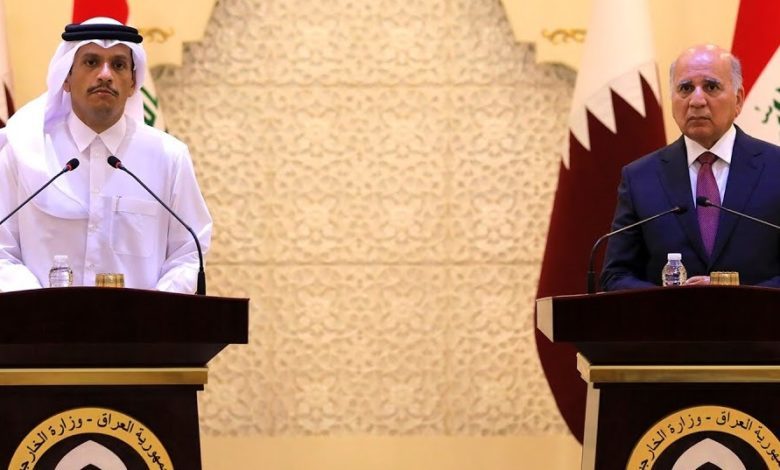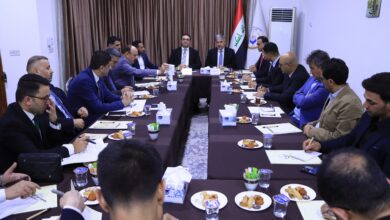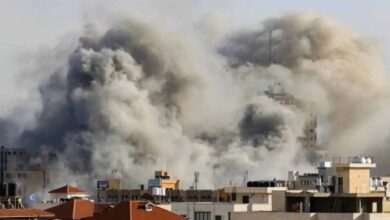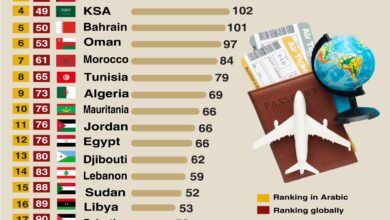Qatar resumes its regional activities under the new US administration

Nizar Hatem
During his recent visit to Baghdad, Qatari Deputy Prime Minister and Foreign Minister Sheikh Muhammad Abdul Rahman Al Thani held a series of talks with his Iraqi counterpart Fouad Hussein, President Barham Salih, Prime Minister Mustafa Al-Kadhimi and Parliament Speaker Muhammad al-Halbousi.
These talks focused on ways to improve bilateral relations between the two countries in various fields, reactivate the joint committee for economic cooperation, and the need to support projects related to creating job opportunities that the Qatari minister described as beneficial for both countries.
During his talks with the three Iraqi presidencies, there was a broad agreement on the need to lay the foundations for regional security, solve the outstanding problems, and the importance of coordination between Doha and Baghdad in order to achieve stability in the region.
Hence, it is worth saying that this visit, which is the second since last year of the Qatari Deputy Prime Minister and Minister of Foreign Affairs, to the Iraqi capital covered issues related to bilateral relations, but at the same time indicates Doha’s desire to revitalize its regional role under the new American administration headed by Joe Biden, after this role had witnessed a decline during the rule of the former president Donald Trump.
Undoubtedly, Doha’s maintaining good relations with the region’s countries despite the annoyance of some of its sister countries in the Gulf Cooperation Council gives it a wide margin to move towards strengthening its role in the region, and it will strive to further escalate this role regardless of the divergent views it has with some of its Gulf neighbours. It had been severely besieged for reasons related to the nature of the Qatari policy, which seems unique in dealing with issues in the region and the Arab world in general, which is explained by countries in the Gulf Cooperation Council as a reversal of the policy of the GCC countries towards the other, while Qatar believes that its own platform related to its own interests is the compass through which it was able to achieve its vitality and regional and international influence in isolation from other Gulf countries, and it is also aware that this approach that it took on its own has returned with positive results during the siege imposed by countries in the Cooperation Council. As Iran and Turkey contributed after the declaration of the Gulf blockade in easing many of the bottlenecks on the Qatari side and contributing to Doha’s steadfastness in the face of the blockade until overcoming it, and then settling the crisis – relatively – within the framework of the Cooperation Council .
And because the Qatari leadership has become aware that the objections of some Gulf countries to their foreign policy are no longer able to hinder it, especially after the era of former US President Donald Trump and the arrival of President Joe Biden, who has maintained friendly relations with Qatar since taking office as did former President Barack Obama.
Biden, who announced – more than once – the need to resolve crises through diplomatic means, feels a lot of satisfaction with the Qatari efforts aimed at containing the troubling conditions in the region, which overlap with each other – practically – in both negative and positive outcomes.
The hot files in the region are many and complex, which allow Doha to invest its connected relations with the parties to these files, in order to achieve through it a vital and effective presence in the regional and international arenas, in a way that enhances its ambitious goals to confront and register attendance in major issues, including the Iranian nuclear file, which represents reaching the resumption of the agreement on it between Washington and Tehran are an international demand, because its collapse will lead the region and the world to more escalation and repercussions whose great danger is difficult to predict.
Hence, it is no longer unlikely that the Qatari foreign minister, whose country shares the same desire with Iraq to reach a solution to this most important file, discussed with Iraqi officials the need for joint coordination to resolve the outstanding contract between Washington and Tehran, as the two countries maintain good relations with the American and Iranian sides.
The Qatari Deputy Prime Minister had visited Tehran and met the senior officials there, along with his counterpart Muhammad Javad Zarif, and expressed his country’s readiness to play a role in reaching a solution to the Iranian nuclear file. Doha had called, as some senior officials said, for the need to open the dialogue table between the Gulf countries with Iran, in order to reach a curbing of the lingering crises, especially between the Kingdom of Saudi Arabia and Iran, in particular due to the hot events in Yemen.
This Qatari rush to bring opposing views closer in order to rotate them in the countries of the region undoubtedly enjoys the support of Iraq and a number of countries in the region, including Iran, in addition to the American support or consent, as a minimum and at the right time.
In order for Doha to balance its relationship in the Iraqi arena, the Qatari guest traveled to Iraqi Kurdistan and discussed with the President of the region Nechirvan Barzani and the leader of the Kurdistan Democratic Party Masoud Barzani about the relationship between his country and the regional government, while Sheikh Muhammad Al Thani referred to what he described as the appropriate climate for investment in Kurdistan, explaining that the opening of a consulate for his country in Erbil would create a suitable platform for work in the region.





